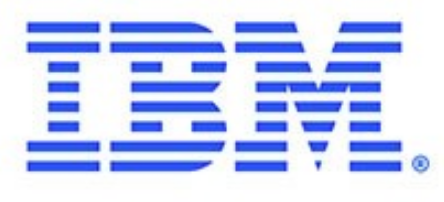IBM on quantum technologies
Quantum Computing at IBM
IBM Q is an industry first initiative to build universal quantum computers for business, engineering and science. This effort includes advancing the entire quantum computing technology stack and exploring applications to make quantum broadly usable and accessible. With a worldwide network of Fortune 500 companies, academic institutions, researchers, educators, and enthusiasts, we are committed to driving innovation for our clients in the IBM Q Network and the extended IBM Q Community.
In September 2019 IBM announced the opening of the IBM Quantum Computation Center in New York State. The new center expands the world's largest fleet of quantum computing systems for commercial and research activity that exist beyond the confines of experimental lab environments. The IBM Quantum Computation Center will support the growing needs of a community of over 150,000 registered users and nearly 80 commercial clients, academic institutions and research laboratories to advance quantum computing and explore practical applications.
Scalable Quantum Systems
At the heart of IBM Q systems is the transmon qubit. Successive generations of IBM Q processors have demonstrated the potential of superconducting transmon qubits as the basis for electrically controlled solid-state quantum computers. With a scalable approach to chip architecture and research into error correction and mitigation, IBM Q is at the forefront of developing systems with sufficient quantum volume to demonstrate advantage in real world applications.
Several IBM quantum devices are available to the public through our quantum cloud services. Users can access devices for free through the IBM Q Experience or Qiskit, and more advanced quantum systems are available to our clients in the IBM Q Network.
The global community of users have run more than 14 million experiments on IBM's quantum computers through the cloud since 2016, and published more than 200 scientific papers. To meet growing demand for access to real quantum hardware, ten quantum computing systems are now online through IBM's Quantum Computation Center. The fleet is now composed of five 20-qubit systems, one 14-qubit system, and four 5-qubit systems and the new 53-qubit quantum computer, the single largest universal quantum system made available for external access in the industry, to date. Five of the systems now have a Quantum Volume of 16 – a measure of the power of a quantum computer – demonstrating a new sustained performance milestone.
Applications
IBM Q is accelerating the application of quantum computing to solve the most challenging problems in chemistry, optimization, and machine learning.
Machine Learning: Using quantum systems to train and run machine learning algorithms could allow us to solve complex problems more quickly, potentially improving applications like disease diagnosis, fraud detection, and efficient energy management.
Materials: Simulating quantum mechanical systems is a promising early application of quantum computing. This technique can be applied to fields such as chemistry, materials science, and high energy physics.
Optimization: Quantum computers may potentially find the best solution among varying weighted options more efficiently than classical computers, and could provide advantage in areas such as portfolio optimization, risk analysis, and Monte-Carlo-like applications.
Finance: In the financial service sector, many computationally intensive problems exist, such as optimization of financial portfolios or the risk analysis of such portfolios. For some of these problems, quantum computing may have the potential to achieve a significant advantage compared to classical computing.
For more information
www.ibm.com/ibmq
https://quantum-computing.ibm.com/
https://qiskit.org/
Contacts
Olivier Hess - IBM Q France Leader - olivier.hess@fr.ibm.com
Gaelle Dussutour - Communication Manager - dusga@fr.ibm.com

